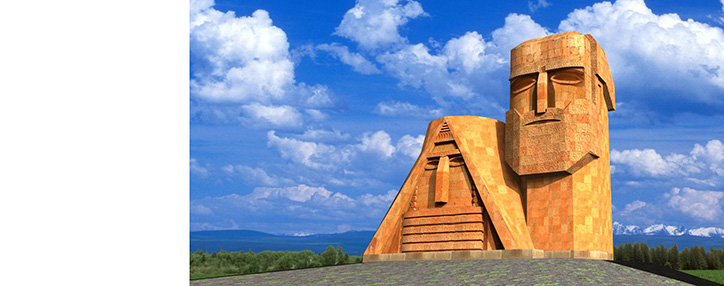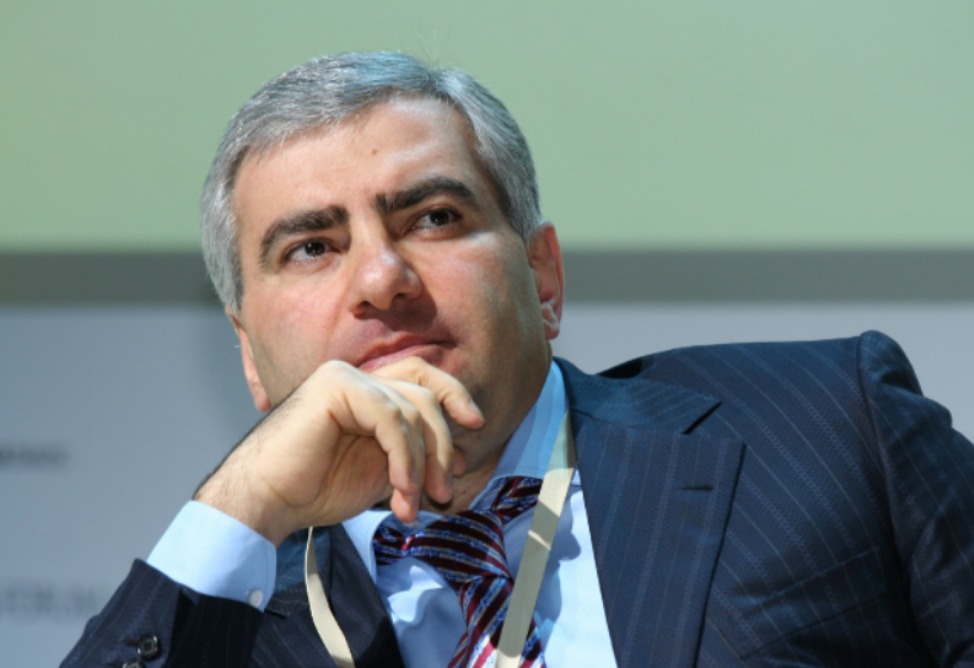Pashinyan says no phased option of Karabakh settlement being discussed
06.05.2020,
18:32
Armenian Prime Minister Nikol Pashinyan was asked today to comment on Russian Foreign Minister Sergey Lavrov’s claims that Yerevan and Baku were 'actively discussing” peace proposals calling for the so-called phased resolution of the Nagorno-Karabakh conflict implying territorial concessions to Azerbaijan.

YEREVAN, May 6. /ARKA/. Armenian Prime Minister Nikol Pashinyan was asked today to comment on Russian Foreign Minister Sergey Lavrov’s claims that Yerevan and Baku were 'actively discussing” peace proposals calling for the so-called phased resolution of the Nagorno-Karabakh conflict implying territorial concessions to Azerbaijan.
Russian Foreign Minister Sergey Lavrov said in late April that his Armenian and Azerbaijani counterparts were discussing the phased conflict settlement option proposed to them in 2019 April. In his words, the proposals envisage that in the first stage Armenian forces would withdraw from several districts around Karabakh to be followed by unblocking transport, economic and other communications.
Tigran Ulikhanyan, an MP from the opposition Prosperous Armenia party, asked Pashinyan to give a definite and clear-cut answer whether the phased option was being negotiated.
“My answer is 'no,” but if this answer is not enough to reassure all those concerned with the fate of Karabakh , then other measures will have to be taken. Over the past 24 hours, I have reassured them a hundred times,” Pashinyan said.
The prime minister once again repeated the statement made earlier that not a single solution to the Karabakh problem can be put into practice if it is unacceptable to the Republic of Armenia and the people of Artsakh (Nagorno-Karabakh).
“I would like to repeat that from May 8, 2018 to the present, nothing has changed in my position on the settlement of the Nagorno-Karabakh conflict. It’s not difficult for me to answer this question, but I have said this repeatedly. I think that such a statement needs to be made only once," he added.
In response to Lavrov's claims, Armenia's Foreign Minister Zohrab Mnatsakanyan insisted earlier that for the last two years the conflicting parties have only exchanged views on “some elements” of peace deals put forward by the Russian, U.S. and French mediators in the past.
The Nagorno-Karabakh conflict erupted into armed clashes after the collapse of the Soviet Union in the early 1990s as the predominantly Armenian-populated enclave of Azerbaijan sought to secede from Azerbaijan and declared its independence backed by a successful referendum.
On May 12, 1994, the Bishkek cease-fire agreement put an end to the military operations. A truce was brokered by Russia in 1994, although no permanent peace agreement has been signed. Since then, Nagorno-Karabakh and several adjacent regions have been under the control of Armenian forces of Karabakh. Nagorno-Karabakh is the longest-running post-Soviet era conflict and has continued to simmer despite the relative peace of the past two decades, with snipers causing tens of deaths a year.
In the early hours of April 2, 2016 Azerbaijan, in gross violation of the agreements launched a large-scale offensive along the entire Line of Contact between the armed forces of the Nagorno-Karabakh Republic and Azerbaijan, using heavy weaponry, artillery and combat aircraft. Only thanks to the decisive actions of the Defense Army, which gave a fitting rebuff, on April 5, Azerbaijan was forced to ask, as in 1994, through the mediation of the Russian Federation for the cessation of the hostilities. It has been generally maintained, despite the recurrent violations by the Azerbaijani side. -0-
Russian Foreign Minister Sergey Lavrov said in late April that his Armenian and Azerbaijani counterparts were discussing the phased conflict settlement option proposed to them in 2019 April. In his words, the proposals envisage that in the first stage Armenian forces would withdraw from several districts around Karabakh to be followed by unblocking transport, economic and other communications.
Tigran Ulikhanyan, an MP from the opposition Prosperous Armenia party, asked Pashinyan to give a definite and clear-cut answer whether the phased option was being negotiated.
“My answer is 'no,” but if this answer is not enough to reassure all those concerned with the fate of Karabakh , then other measures will have to be taken. Over the past 24 hours, I have reassured them a hundred times,” Pashinyan said.
The prime minister once again repeated the statement made earlier that not a single solution to the Karabakh problem can be put into practice if it is unacceptable to the Republic of Armenia and the people of Artsakh (Nagorno-Karabakh).
“I would like to repeat that from May 8, 2018 to the present, nothing has changed in my position on the settlement of the Nagorno-Karabakh conflict. It’s not difficult for me to answer this question, but I have said this repeatedly. I think that such a statement needs to be made only once," he added.
In response to Lavrov's claims, Armenia's Foreign Minister Zohrab Mnatsakanyan insisted earlier that for the last two years the conflicting parties have only exchanged views on “some elements” of peace deals put forward by the Russian, U.S. and French mediators in the past.
The Nagorno-Karabakh conflict erupted into armed clashes after the collapse of the Soviet Union in the early 1990s as the predominantly Armenian-populated enclave of Azerbaijan sought to secede from Azerbaijan and declared its independence backed by a successful referendum.
On May 12, 1994, the Bishkek cease-fire agreement put an end to the military operations. A truce was brokered by Russia in 1994, although no permanent peace agreement has been signed. Since then, Nagorno-Karabakh and several adjacent regions have been under the control of Armenian forces of Karabakh. Nagorno-Karabakh is the longest-running post-Soviet era conflict and has continued to simmer despite the relative peace of the past two decades, with snipers causing tens of deaths a year.
In the early hours of April 2, 2016 Azerbaijan, in gross violation of the agreements launched a large-scale offensive along the entire Line of Contact between the armed forces of the Nagorno-Karabakh Republic and Azerbaijan, using heavy weaponry, artillery and combat aircraft. Only thanks to the decisive actions of the Defense Army, which gave a fitting rebuff, on April 5, Azerbaijan was forced to ask, as in 1994, through the mediation of the Russian Federation for the cessation of the hostilities. It has been generally maintained, despite the recurrent violations by the Azerbaijani side. -0-



